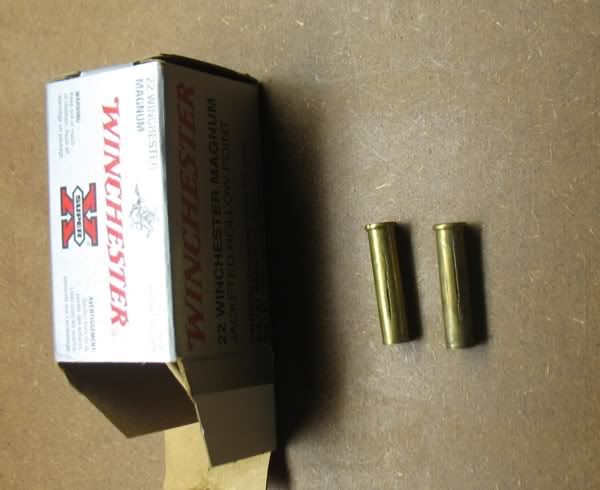RedneckFur
New member
A few months ago while shooting my .22 magnum, I noticed that one shot kicked harder and had a much louder report than my .22mag normally does. I was curious as to what happend, and when I tried to eject the spent casing, I found it was stuck. It had to be removed with a cleaning rod after pulling it out with a small pair of pliers didn't work. I saw the split that you see on one of those casings in the picture. Oddly enough, it was the last round in the box that split.

Fast foward to today. I'm shooting my .22 mag again, with another box of winchester ammo that I bought months ago at the same time as the other box. After about 10 rounds fired, I got another loud report, with excessive recoil for a .22mag. Same stuck casing. Also, same case split.
I've shot my .22 mag with many other brands of ammo with no issue. Is this a sign that winchester's quality control dept is sleeping at the wheel?
I'm now afraid to shoot any more winchester .22 mag ammo for fear that the next one could blow the rifle up in my face.
Have any of you had similar problems? Should I contact winchester with this?

Fast foward to today. I'm shooting my .22 mag again, with another box of winchester ammo that I bought months ago at the same time as the other box. After about 10 rounds fired, I got another loud report, with excessive recoil for a .22mag. Same stuck casing. Also, same case split.
I've shot my .22 mag with many other brands of ammo with no issue. Is this a sign that winchester's quality control dept is sleeping at the wheel?
I'm now afraid to shoot any more winchester .22 mag ammo for fear that the next one could blow the rifle up in my face.
Have any of you had similar problems? Should I contact winchester with this?
Last edited:
